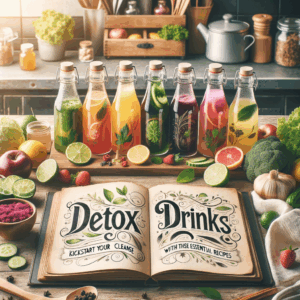
Healthy Aging Secrets: Must-Have Tips for Effortless Wellness
Unlocking the Secrets to Healthy Aging: Your Path to Effortless Wellness
In a world where the pursuit of eternal youth seems to drive many aspects of society, the concept of healthy aging shines as a beacon of wisdom and balance. Aging is an inevitable journey that we all embark on, but how we traverse this path can make a world of difference in our overall well-being. By incorporating simple yet powerful strategies into our daily lives, we can embrace the beauty of aging gracefully and healthily. Let’s delve into the secrets of healthy aging and uncover the must-have tips for effortless wellness.
Embracing Nutrient-Rich Foods for Vitality
One of the cornerstone secrets to healthy aging lies in the food we consume. Opting for a diet rich in essential nutrients is key to supporting our overall health and vitality as we age. Incorporating a colorful array of fruits and vegetables into our meals provides a wealth of vitamins, minerals, and antioxidants that promote cell rejuvenation and combat the effects of aging. Additionally, including lean proteins, whole grains, and healthy fats in our diet can help maintain muscle mass, regulate blood sugar levels, and support heart health.
Staying Hydrated: The Fountain of Youth
Adequate hydration is often underestimated when it comes to healthy aging. Water plays a vital role in maintaining the body’s functions, from regulating temperature to supporting digestion and nutrient absorption. As we age, our sense of thirst may diminish, making it crucial to consciously prioritize hydration. Aim to drink plenty of water throughout the day and consider herbal teas or fruit-infused water for added flavor and health benefits. Hydrating your body from within can enhance skin elasticity, promote detoxification, and support overall vitality.
Prioritizing Physical Activity for Longevity
Regular physical activity is a non-negotiable component of healthy aging. Engaging in a mix of cardiovascular exercise, strength training, and flexibility exercises can help maintain muscle mass, bone density, and joint flexibility as we age. Physical activity also boosts circulation, enhances cognitive function, and supports emotional well-being. Find activities that you enjoy, whether it’s dancing, swimming, yoga, or simply taking brisk walks in nature. Moving your body regularly not only promotes physical health but also fosters a sense of vitality and empowerment.
Cultivating Mind-Body Balance Through Stress Management
The connection between our mental and physical well-being is profound, especially when it comes to healthy aging. Chronic stress can accelerate the aging process and contribute to a host of health issues. Implementing stress management techniques such as meditation, deep breathing exercises, yoga, or mindfulness practices can help calm the mind, reduce cortisol levels, and promote relaxation. Prioritize self-care activities that nurture your spirit and bring you joy, whether it’s reading a book, listening to music, or spending time in nature. Cultivating mind-body balance is a powerful secret to aging gracefully and maintaining optimal wellness.
Nurturing Relationships and Social Connections
As social beings, our relationships and connections with others play a significant role in our overall well-being, especially as we age. Maintaining strong social connections, whether with family, friends, or community groups, can offer emotional support, reduce feelings of loneliness, and promote a sense of belonging. Engage in meaningful conversations, share experiences, and participate in activities that bring you closer to your loved ones and peers. Cultivating positive relationships and fostering a sense of community can enrich your life and contribute to healthy aging.
Quality Sleep: The Restorative Elixir
The importance of quality sleep in the realm of healthy aging cannot be overstated. During sleep, the body undergoes essential processes of repair, renewal, and detoxification. Aim to prioritize a consistent sleep schedule, create a calming bedtime routine, and optimize your sleep environment for restful nights. Limit screen time before bed, practice relaxation techniques, and ensure your bedroom is conducive to quality sleep. Adequate rest not only rejuvenates the body and mind but also plays a pivotal role in supporting cognitive function, immune health, and emotional balance.
Sun Protection for Radiant Skin and Wellness
While soaking up the sun offers vitamin D benefits, sun exposure can also contribute to premature aging and skin damage. Protecting your skin from harmful UV rays is a vital aspect of healthy aging. Apply broad-spectrum sunscreen daily, wear protective clothing, and seek shade during peak sun hours to safeguard your skin’s health. Additionally, consider incorporating antioxidants and skin-loving ingredients into your skincare routine to combat free radical damage and maintain a youthful glow. By prioritizing sun protection, you can enhance your skin’s radiance and resilience for years to come.
Mindful Eating for Digestive Health and Nutrient Absorption
Practicing mindful eating is a powerful tool for promoting digestive health and optimizing nutrient absorption, both of which are essential for healthy aging. Slow down during meals, chew your food thoroughly, and savor the flavors and textures of each bite. Mindful eating not only enhances the enjoyment of food but also allows your body to better digest and assimilate nutrients from your meals. Pay attention to hunger cues, eat until you’re satisfied, and choose whole, unprocessed foods to nourish your body from the inside out. By cultivating a mindful approach to eating, you can support your digestive system, improve nutrient utilization, and enhance overall wellness as you age.
Exploring the Benefits of Mindfulness and Mental Well-Being
Mental well-being is a cornerstone of healthy aging, encompassing emotional resilience, cognitive function, and overall psychological health. Incorporating mindfulness practices into your daily routine can help reduce stress, enhance focus and awareness, and cultivate a sense of inner peace. Take time to engage in mindfulness meditation, deep breathing exercises, or yoga to quiet the mind, center yourself, and nurture your mental well-being. By fostering a positive mindset and emotional balance, you can navigate the ups and downs of life with grace and resilience, promoting healthy aging from the inside out.
FAQs: Addressing Common Questions on Healthy Aging
1. How can genetics impact the process of healthy aging?
Genetics play a role in determining certain aspects of aging, such as predispositions to certain health conditions or the rate of collagen production. While genetics can influence aging to some extent, lifestyle factors such as diet, exercise, and stress management also play a significant role in healthy aging.
2. What role does hydration play in healthy aging?
Staying hydrated is essential for healthy aging as it supports overall cellular function, helps maintain skin health, aids in digestion, and regulates body temperature. Dehydration can accelerate the aging process and contribute to various health issues, making adequate hydration a key component of effortless wellness.
3. How does physical activity contribute to healthy aging?
Regular physical activity is crucial for maintaining muscle mass, bone density, cardiovascular health, and cognitive function as we age. Exercise also helps regulate metabolism, improve mood, and boost overall well-being. Incorporating a mix of aerobic, strength training, and flexibility exercises can support healthy aging and vitality.
4. What are some tips for enhancing skin health and combating signs of aging?
To promote radiant skin and combat signs of aging, prioritize sun protection, hydrate your skin, consume nutrient-rich foods, and use skincare products with antioxidants and anti-aging ingredients. Establishing a skincare routine that addresses your skin’s specific needs and protects it from environmental stressors can help maintain a youthful complexion and support healthy aging.
5. How does stress impact the aging process, and what are effective stress management strategies?
Chronic stress can accelerate aging and contribute to a range of health issues, including inflammation, hormonal imbalances, and cognitive decline. Effective stress management strategies include meditation, deep breathing exercises, yoga, mindfulness practices, and engaging in activities that promote relaxation and emotional well-being.
6. What role do sleep and rest play in healthy aging?
Quality sleep is essential for healthy aging as it allows the body to repair, regenerate, and detoxify during rest. Adequate rest supports cognitive function, immune health, emotional balance, and overall vitality. Prioritizing a consistent sleep schedule and creating a relaxing bedtime routine can optimize restorative sleep and promote effortless wellness as you age.
7. How can mindful eating contribute to digestive health and nutrient absorption?
Mindful eating involves being present and attentive while consuming your meals, which can enhance digestion, nutrient absorption, and overall satisfaction with your food. Chewing food thoroughly, savoring each bite, and paying attention to hunger cues can support digestive health and improve the body’s utilization of essential nutrients for healthy aging.
8. What are the benefits of incorporating mindfulness practices into daily life for healthy aging?
Integrating mindfulness practices such as meditation, deep breathing, and yoga into your daily routine can help reduce stress, enhance focus and awareness, and cultivate emotional resilience. Mindfulness promotes mental well-being, emotional balance, and a positive outlook on life, contributing to healthy aging from a holistic perspective.
9. How can social connections and relationships impact healthy aging?
Maintaining strong social connections and relationships can offer emotional support, reduce feelings of loneliness, and promote a sense of belonging and purpose as we age. Engaging with loved ones, friends, and community groups can enhance mental well-being, emotional resilience, and overall quality of life for vibrant and healthy aging.
10. What are some practical tips for incorporating healthy aging secrets into daily life?
To embrace healthy aging effortlessly, prioritize nutrient-rich foods, stay hydrated, engage in regular physical activity, manage stress effectively, nurture relationships, prioritize sleep, protect your skin, practice mindful eating, cultivate mental well-being through mindfulness practices, and seek to incorporate these habits into your daily routine for sustained wellness and vitality.
References:
1. Harvard Health Publishing. (n.d.). The benefits of protein. [https://www.health.harvard.edu/staying-healthy/the-benefits-of-protein]
2. National Institute on Aging. (2021). Aging and Health A to Z. [https://www.nia.nih.gov/health/aging-and-health-a-to-z]
3. Mayo Clinic. (2021). Water: How much should you drink every day? [https://www.mayoclinic.org/healthy-lifestyle/nutrition-and-healthy-eating/in-depth/water/art-20044256]

